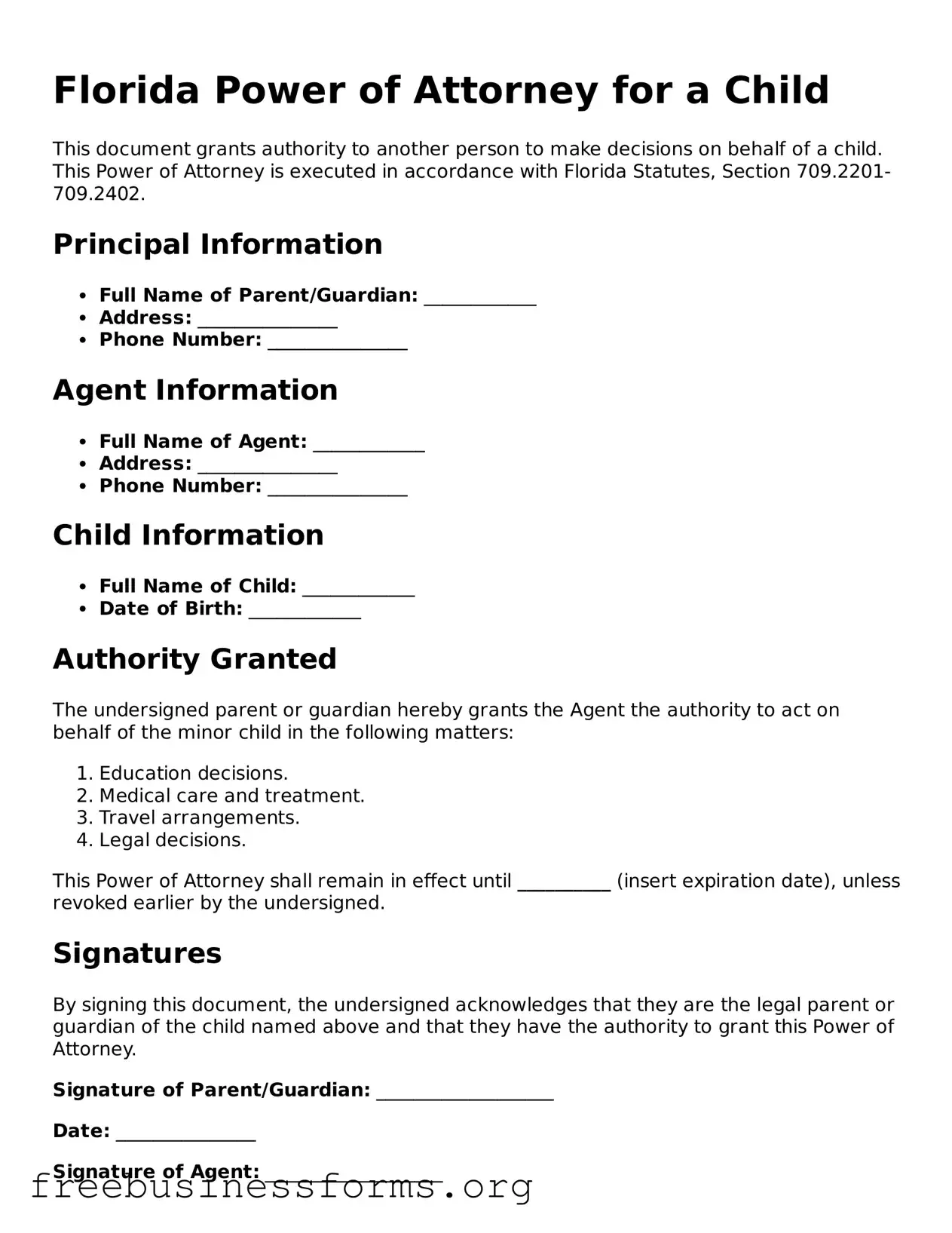Blank Power of Attorney for a Child Template for Florida
The Florida Power of Attorney for a Child form is a legal document that allows a parent or guardian to designate another adult to make decisions on behalf of their child. This arrangement can be essential in situations where the parent is temporarily unavailable, such as during travel or medical emergencies. By using this form, parents can ensure that their child's needs are met without interruption.
Open Form Here

Blank Power of Attorney for a Child Template for Florida
Open Form Here

Open Form Here
or
↓ PDF File
Quickly complete this form online
Complete your Power of Attorney for a Child online quickly — edit, save, download.